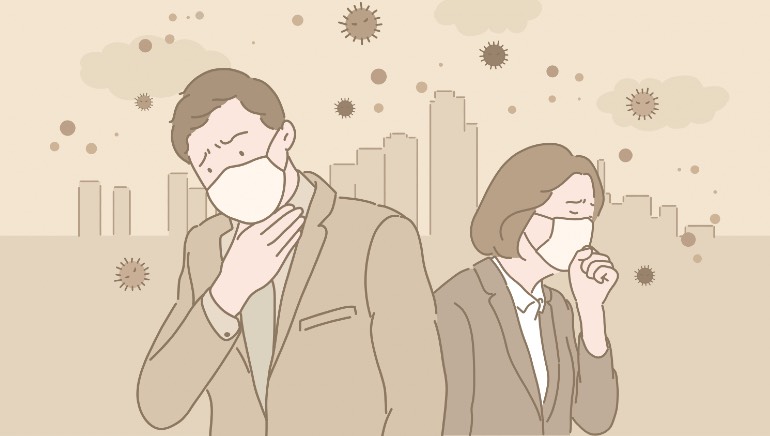6 Important Tips To Safeguard Against Air Pollution


Air pollution has emerged as a significant concern in many parts of the world, including cities like Kolkata, where the average AQI is 300, indicating unhealthy air conditions. Exposure to poor air quality can lead to serious health issues such as strokes, lung diseases, cancers, aggravated asthma, and increased respiratory infections.
To combat these risks, below are 6 practical tips for better air quality management:
1. Stay Informed About Air Quality: Regularly check the AQI in your area through reliable websites or mobile apps. This is crucial for planning your day, especially if you live in urban areas where pollution levels can fluctuate significantly.
2. Time Your Outdoor Activities Wisely: Schedule outdoor exercises and activities during times when pollution levels are typically lower, like early mornings. During high pollution periods, such as in the evenings in many Indian cities, it’s best to stay indoors.
3. Use Pollution Masks: In areas with poor air quality, wearing masks designed to filter out pollutants can be a lifesaver. This is particularly important in Indian cities with high traffic congestion and industrial pollution.
4. Hydration is Key: Drinking adequate water helps your body detoxify and supports respiratory health. Given the Indian climate and pollution levels, increasing water intake is advisable, especially after outdoor exposure.
5. Improve Indoor Air Quality: Since we spend the majority of our time indoors, it is important to improve the indoor air quality. Enhance your indoor environment with air purifiers equipped with HEPA filters, which are known to effectively remove pollutants. Ventilate your home during times when outdoor air quality is better. Incorporating air-purifying plants like spider plants, peace lilies, and snake plants, which naturally remove pollutants, can also improve indoor air quality.
6. Advocate for Environmental Change: Support local and national initiatives aimed at reducing pollution. Embrace eco-friendly practices like carpooling, using public transport, and avoiding the burning of waste. Engaging in community clean-up drives and tree plantation campaigns can also make a significant difference.
Considering the high pollution levels in many Indian cities, it is essential to have regular health check-ups, with a particular focus on respiratory health. Prompt medical attention should be sought if you experience any adverse symptoms. Concurrently, advocating for and supporting the use of renewable energy sources like solar and wind power is crucial. These sustainable energy options are becoming increasingly viable in India and can play a significant role in reducing the reliance on fossil fuels, which is key to improving long-term air quality. By taking these combined steps, we can protect ourselves from the immediate dangers of air pollution and contribute to creating a healthier, more sustainable environment in India.
About the author- Dr.Hindol Dasgupta, Consultant, Pulmonology, Fortis Hospital, Anandapur
